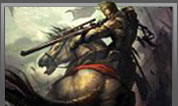Why isn’t The Death of Chaos available on Kindle, when all your other fantasy novels are?
I asked the good folks at Tor about this, and they report that the electronic format was sent to Amazon six months ago. They’ve also contacted Amazon about this, over a week ago, but so far it’s still unavailable. While I’d be the first to admit that often publishers have not been as speedy or responsive as they should be, not all glitches are on the part of the publisher. A number of times Amazon has been slow to change prices [downward] on my ebooks, even though Amazon was notified well in advance, and many readers have immediately jumped on Macmillan for price-gouging and the like. Just remember, both the publishers and Amazon have agendas… not just the publishers.





